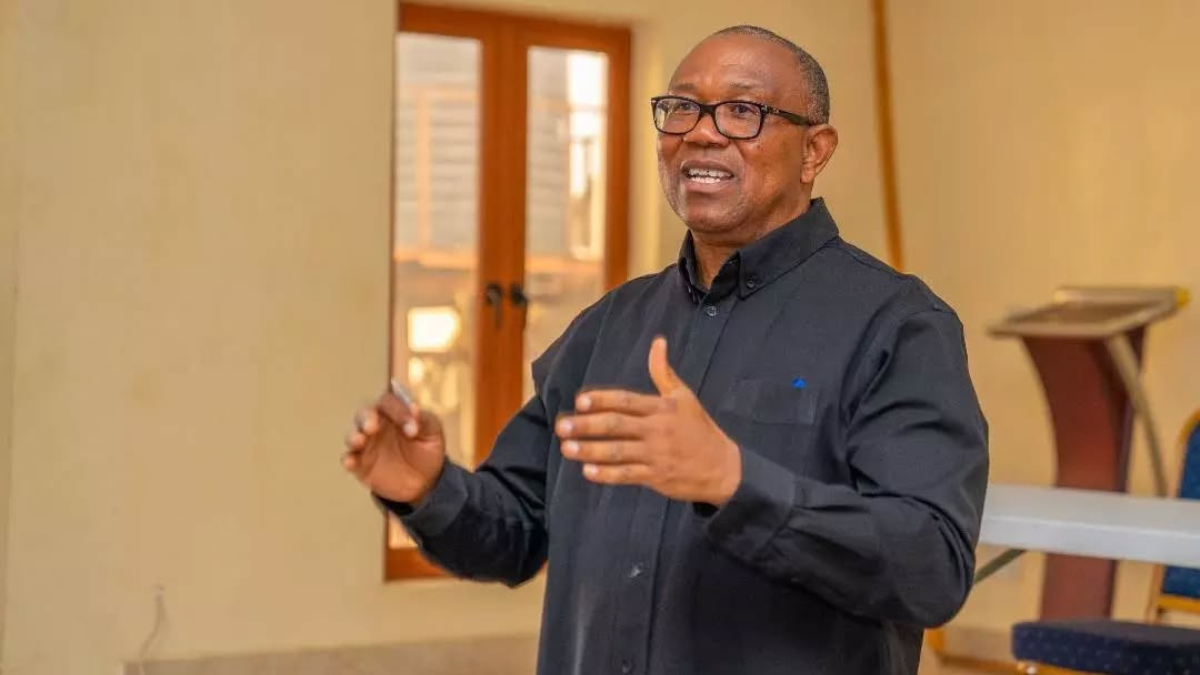As political maneuvering intensifies ahead of Nigeria’s 2027 general elections, the South-South Emerging Leaders’ Forum (SELF) has raised concerns that former Labour Party presidential candidate Peter Obi may be preparing to exit the coalition platform led by the African Democratic Congress (ADC). The group alleges that Obi fears he may not secure the coalition’s presidential ticket through an open primary process and may be positioning himself to leave, just as he did ahead of the Peoples Democratic Party’s presidential primaries in 2022.
In a statement released by its National Coordinator, Comrade Benjamin Kolowei, SELF accused Obi and his supporters of applying undue pressure on the coalition leadership to zone the 2027 presidential ticket to the South. The group warned that such attempts could provoke a regional backlash, particularly from Northern stakeholders who may feel sidelined after what they described as 18 years of Southern dominance in the presidency. “We note that Mr. Peter Obi and his Obedient movement, in recent times, have resorted to threatening and blackmailing the leadership of the coalition. Such a strategy will not work,” the forum declared.
The group also criticized Obi’s political history, accusing him of avoiding internal democratic processes such as party primaries. According to SELF, Obi left the PDP in 2022, rather than contesting the presidential primaries, and is now attempting to influence the ADC coalition similarly. “If Mr. Obi claims to be a democrat, why is he always avoiding primary elections?” the statement asked, adding that democracy should be about contests, not “free tickets.”
This criticism comes on the heels of Obi’s controversial involvement in a broader coalition recently announced by the ADC. Though Obi has maintained that he remains a member of the Labour Party, his participation in the coalition has drawn backlash from LP loyalists, particularly from the faction led by Julius Abure. The LP leadership has since issued an ultimatum threatening to expel Obi unless he officially withdraws from the coalition.
In response to these concerns, Obi has defended his decision to join the ADC-led alliance, stating that it is not about abandoning the Labour Party but about uniting opposition forces to build a credible alternative to the ruling All Progressives Congress (APC). “No one group can change Nigeria alone. We must build bridges, even when uneasy ones,” Obi said in a statement, reaffirming his commitment to collaborative politics and national unity.
Despite the tension, the leadership of the ADC coalition, under former Senate President David Mark, has sought to maintain neutrality. Mark has publicly denied endorsing Obi or any other individual as the coalition’s candidate. He emphasized that the coalition has not zoned the presidential ticket to any region and reaffirmed his commitment to transparent and democratic primaries. “We have not adopted anybody. We are building a credible platform,” Mark said, addressing speculation around Obi and other potential aspirants.
Meanwhile, ADC’s National Publicity Secretary, Bolaji Abdullahi, has also addressed reports of internal friction, insisting that there is no crisis within the coalition. He reassured the public that the coalition remains focused on building a unified platform and will implement fair internal processes to determine its presidential candidate.
As the 2027 elections draw nearer, Peter Obi’s political strategy continues to be a subject of national debate. Whether he will remain within the ADC-led coalition or chart a new course entirely remains to be seen. However, the pressure from various quarters, including SELF, Labour Party leadership, and potential rivals within the coalition, suggests that the battle for the 2027 opposition ticket may be one of the fiercest yet in Nigeria’s democratic history.

